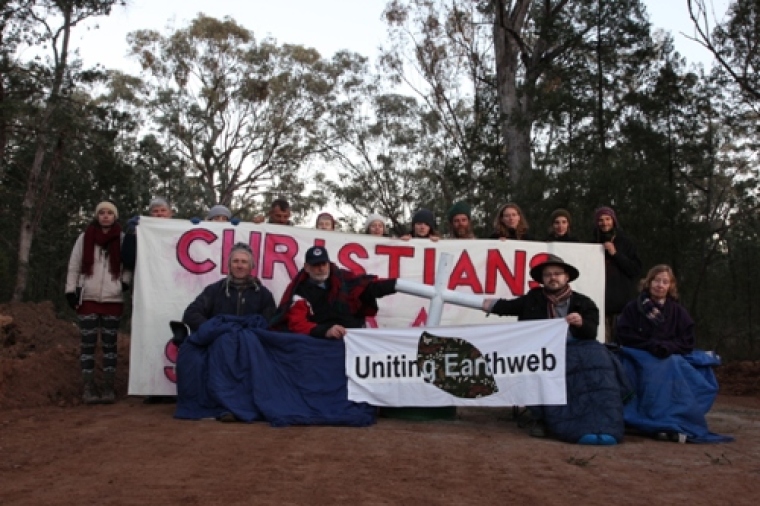
A group of eight ministers and lay people across various church denominations rallied at the site Thursday, praying together with a structure the shape of a cross. They were able to prevent the mining equipment from entering for five hours before the arrests were made.
Rev John Brentnall, one of the arrested ministers, explained the actions of the group, saying that only the rich would benefit from the planned development of the coal mine, while the poor would be the ones to suffer.
"Responsible people are trying to reduce their carbon footprint, but it doesn't mean much if our coal is causing many times more emissions overseas than what we're saving at home," he said.
"It's the poor who suffer the most, through unpredictable weather, extreme weather-related events and rising sea levels...this is an issue of social justice."
"This is also a matter of intergenerational justice," Pastor John Carroll of the Brethren Church added.
"Will we not be judged harshly by future generations if we leave them infertile soil, poisoned water and irreversible destruction to our planet?" he asked.
Maules Creek
According to the Australia Religious Response to Climate Change (ARRCC), locals are also upset at the Whitehaven's planned coalmine, fearing the loss of habitat for certain endangered species and loss of groundwater for farmers.
The locals also labelled the plan a 'disrespect' to the indigenous rights of the Gomeroi Traditional Custodians. The Gomeroi have now had seven of their eleven sacred sites destroyed.
The ARRCC have called on ANZ customers who oppose the plan to write to the bank, asking them to cease their financing of the project.
"This project is one of many coal, oil and gas mining projects causing similar destruction and similarly made possible by money invested by banks, super funds and other financial institutions," the ARRCC said in a statement.
"[We encourage] people of faith to move their money into banks and super funds which screen out investments in fossil fuel extraction."
"Small institutional trustees could also take steps, in phases, to divest from fossil fuels. Dozens of religious trustees have begun doing exactly that."
"It's time we align our money with our values and to refuse to profit from activities that are destroying the earth."
For more information visit www.arrcc.org.au/go-fossil-free
